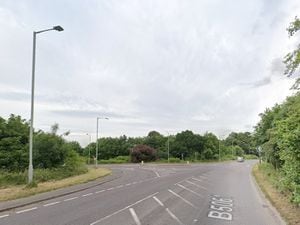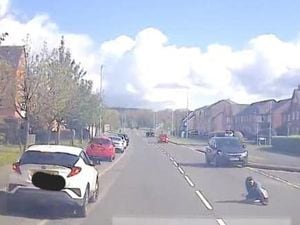Shropshire George Cross bomb disposal hero uses experiences to pen new novel
A Telford-educated bomb disposal expert who was awarded the George Cross for his heroics has written a new book.
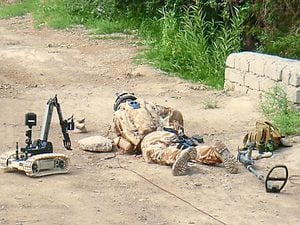
Staff Sergeant Kim Hughes, who left the Army in October, has used his experiences to write a new thriller novel.
His job was to defuse makeshift bombs in the remote, ramshackle town of Sangin, in Afghanistan’s notorious Helmand province, which was a hotbed of Taliban support, and a regional capital of the opium trade.
The former Thomas Telford School pupil became the Army’s most highly decorated bomb disposal operator.
Sangin is not a large town. About twice the size of Bridgnorth, or a little smaller than Bilston.
But it was already well known to the British forces in Afghanistan when Staff Sgt Hughes was sent there in 2009.
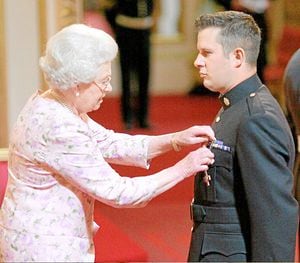
“Nothing good ever came from going there,” says Kim, who was awarded the George Cross for his heroics in the town. “If you were sent to Sangin, you could guarantee that one of your team would be injured.”
The remote, ramshackle town in Afghanistan’s notorious Helmand province, was a hotbed of Taliban support, and a regional capital of the opium trade. And it was packed with explosives.
It was Kim’s job to defuse these makeshift bombs. During his six-month tour of Afghanistan, he defused 119 improvised explosive devices, and became the Army’s most highly decorated bomb disposal operator.
And after leaving the Army in October last year, Kim has now used his experiences to write a new thriller novel.
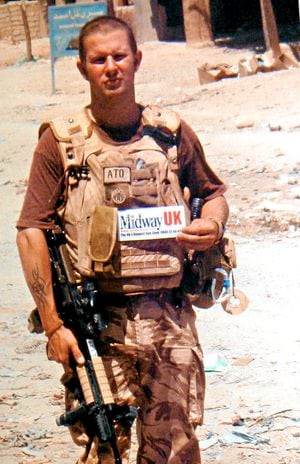
Operation Certain Death is set in the aftermath of a terror attack on a shopping centre, with Staff Sgt Dom Riley – a character loosely based on himself – left with the responsibilty of finding the bomber.
Kim’s own heroics in Sangin came just two weeks after he himself had been blown up by a roadside bomb, leaving him with temporary hearing damage.
“My injuries were caused because I banged my head on the top of the vehicle I was travelling in,” he says. “I felt a fraud in hospital, there were these guys around me who had lost arms and legs.”
Back on duty in Sangin, Kim’s bomb disposal team was on patrol with 2 Rifles, clearing the route ahead for the infantry.
“Just before first light we heard an explosion, our lead searcher had stood on an IED,” he says. “Two stretcher bearers went out to get him, but they trod on a second IED, and they were both killed. A lot of people were injured, and it was my team’s job to find and defuse the devices.”
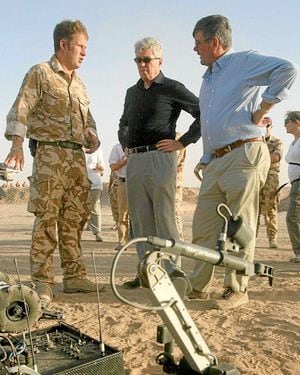
Kim defused seven devices that day, described as “the single most outstanding act of explosive ordnance disposal ever recorded in Afghanistan”.
The man who was injured when he stepped on the first bomb also died on his way to hospital, and Kim describes it as one of the worst days he experienced.
“It is very hard to see injured and dead soldiers but I had a job to do. And you realise with perspective that it is a massive team effort. I didn’t go out on my own. I had a search team who found the bombs. I was just the guy who dealt with them.”
He describes his work as a never-ending battle of wits with the terrorists, who will almost certainly be watching from not too far away.
“You have to make sure they do not see a pattern to the way you work,” he says.
“For example one day, we were out dealing with a number of devices, all of which were wired to batteries buried at the foot of nearby trees. But if they notice you go to the foot of the tree every time, they will plant at bomb at the foot of the trees, and you will be killed. If they notice you always walk on the right-hand side of the road, they will plant their devices there.”
Operation Certain Death by Kim Hughes is on sale now, priced £7.99.




